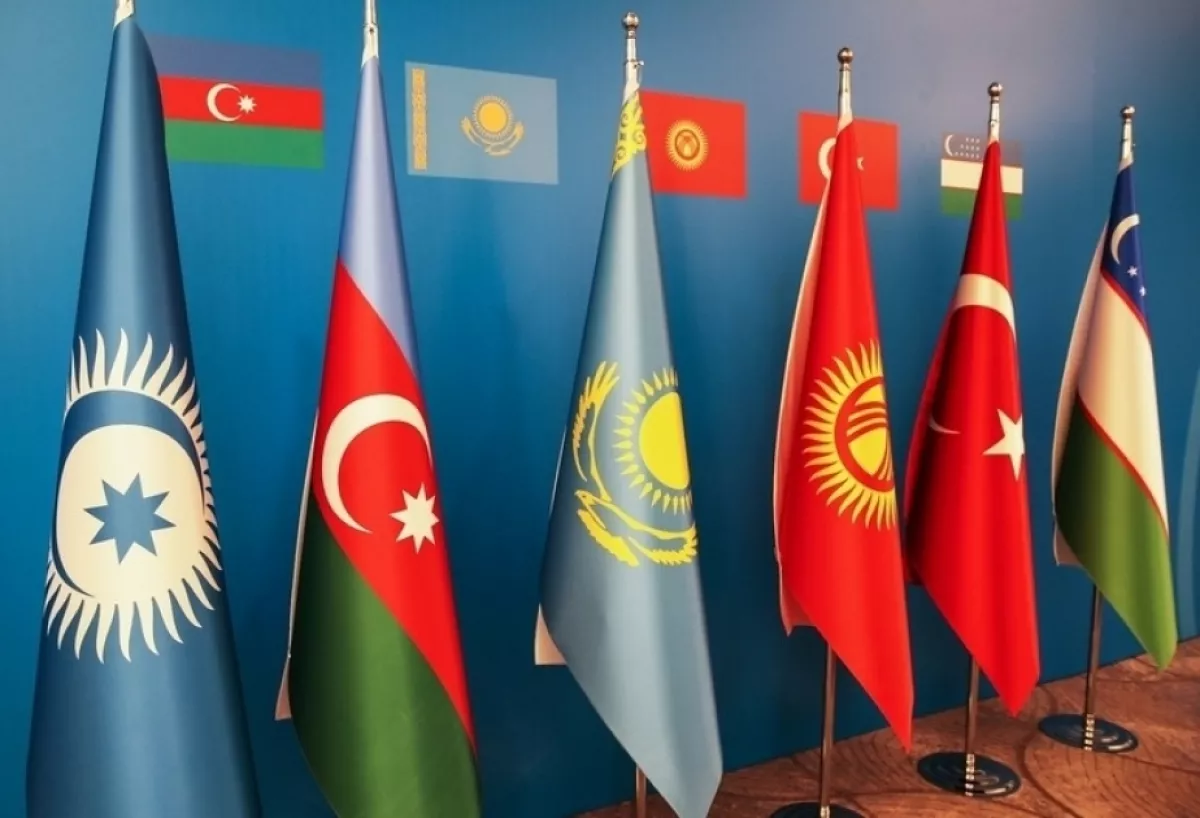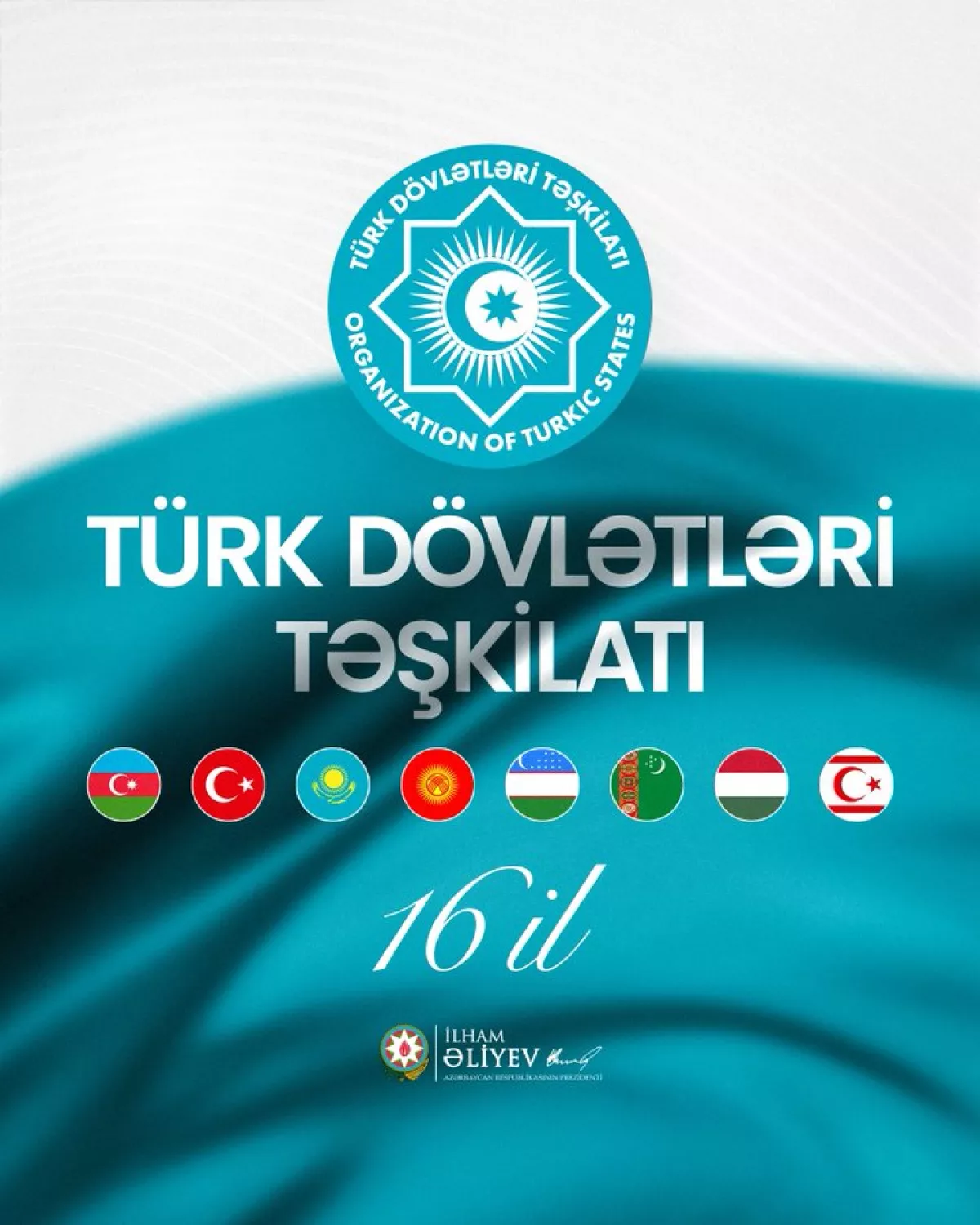Organisation of Turkic States: Platform for peace and development On the eve of a major event
On Tuesday, October 7, the 12th Summit of the Organisation of Turkic States (OTS) will open in Gabala, Azerbaijan, under the theme “Regional Peace and Security.” The summit holds special significance for both Azerbaijan and the broader Turkic world, taking place at a time of profound global shifts, when regional alliances and civilizational communities are increasingly shaping international politics.
Hosting the summit in the year marking the 16th anniversary of the organisation in Azerbaijan is both symbolic and strategically important. The OTS traces its roots to Azerbaijani soil: on October 3, 2009, the Nakhchivan Agreement established the Cooperation Council of Turkic-Speaking States, which later evolved into the Organisation of Turkic States.
The OTS’s history reflects its evolution from a platform for coordination and dialogue among Turkic-speaking countries to a fully-fledged international institution with a broad agenda and growing influence. Initially, the Cooperation Council included Azerbaijan, Kazakhstan, Kyrgyzstan, and Turkey. Uzbekistan joined later, while Turkmenistan, Hungary, and the Turkish Republic of Northern Cyprus became observers.
At the 8th Summit in Istanbul on November 12, 2021, the organisation was officially renamed the Organisation of Turkic States. This change was more than symbolic: it marked a new level of integration, underscoring the political maturity of the institution and its readiness to act as a prominent player on the international stage.

The Turkic region, home to around 175 million people and spanning 4.5 million square kilometres, holds considerable economic and geopolitical potential. In 2024, the combined GDP of OTS member and observer states exceeded $2.1 trillion, while trade turnover reached $1.1 trillion, with intra-OTS trade accounting for approximately $850 billion. The region’s wealth in energy resources and strategic transport corridors further enhances its global significance.
Within this framework, OTS countries actively collaborate across politics, economics, transport, defence, security, culture, education, tourism, and sports, establishing the organisation as a significant actor on the world stage.
The OTS structure comprises the Council of Heads of State, the Council of Foreign Ministers, the Council of Elders, the Committee of Senior Officials, and the Secretariat. It also coordinates the activities of the Parliamentary Assembly of Turkic States (TÜRKPA), the International Turkic Academy, TURKSOY, the Turkic Investment Fund, and the Turkic Culture and Heritage Foundation. Furthermore, the organisation cooperates with the UN, OSCE, OIC, the World Customs Organisation, and other international institutions, steadily expanding its influence in global affairs.
An important strategic document is the concept “Turkic World Vision - 2040,” which sets out long-term priorities such as strengthening trust and political solidarity, developing economic and technical cooperation, preserving cultural heritage, creating a unified transport space, and coordinating in the field of security.
Here, we can proudly state that Azerbaijan occupies a special place in the Organisation of Turkic States. This is not only because the foundations of the organisation were laid in Nakhchivan. It is also because the country actively promotes the agenda of Turkic integration, viewing it as a key international priority. President Ilham Aliyev has repeatedly emphasised the particular importance of the OTS. In a social media post on October 3, he stated:
"3 October is Turkic States Cooperation Day.
It was on this day in 2009 that the Organisation of Turkic States was founded in Azerbaijan’s ancient land of Nakhchivan.
I wish to sincerely congratulate the Turkic world on this significant day.
The Turkic world is our family!
Over the past 16 years, our organisation has strengthened, achieved greater global influence, and expanded its membership.
The Organisation of Turkic States has made a significant contribution to strengthening cooperation between our countries in the political, economic and humanitarian spheres, and to further consolidating solidarity among the Turkic peoples.
Azerbaijan will continue its efforts to strengthen the unity of the Turkic world. Our brotherhood is eternal!"

These words reflect Azerbaijan’s long-term strategy, viewing the OTS not only as a political alliance but also as a civilizational project. In this context, President Ilham Aliyev’s speech at the inauguration ceremony on February 14, 2024, is particularly telling:
"This is the main international organization for us because it is our family. We have no other family. Our family is the Turkic world…We must make a joint effort so that the Organization of Turkic States becomes an important actor and power center in the global arena. We can only achieve this together."
This represents one of the main directions of Azerbaijan’s foreign policy.
The 12th Summit of the Organisation of Turkic States in Gabala will undoubtedly mark an important stage in its development. The forum’s motto, “Regional Peace and Security,” reflects the key challenge of our time: in an era of growing turbulence, the OTS can offer a model of solidarity, mutual support, and coordination. As the host country, Azerbaijan will undoubtedly make every effort to strengthen the consolidation of brotherly Turkic states, jointly addressing security challenges, expanding economic cooperation, and advancing transport projects.








